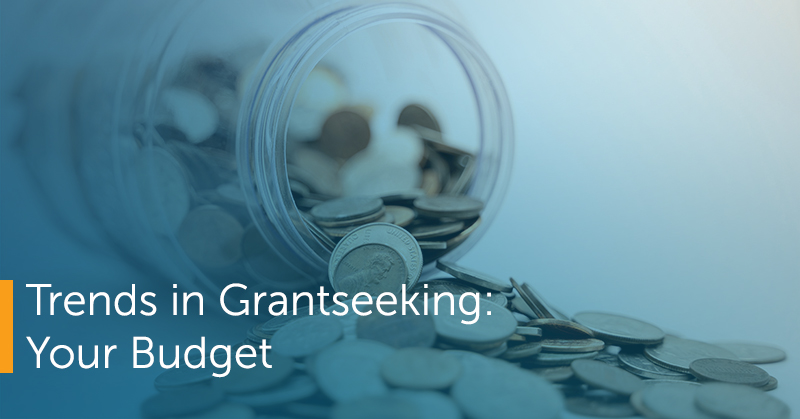-
Software
Compliance Software
Oversee licenses, track renewals, access documents, and more from a single interface.
Software Overview -
Services
Compliance Services
Full service compliance solutions for organizations throughout their entire lifecycles.
Services Overview -
Industries
-
Partner
- Information Center
Trends in Grantseeking: Your Budget
Posted on December 20, 2019 by Harbor Compliance in Fundraising and Grants.

With over 2,800 respondents, the data from the annual State of Grantseeking™ Report can help you to understand recent trends in grantseeking and to identify benchmarks to help you measure your own organization’s success.
Most respondents (90%) applied for grant funding, and of those nearly half reported that grant awards contributed more than 25% of their annual budgets. Applying for at least three grant awards increased respondents’ likelihood of winning an award. While 25% of organizations that submitted one application won no awards, only 6% of organizations that submitted three to five applications won no awards.
Year after year, the report shows that an organization’s annual budget has the greatest impact on their grantseeking experience, because it speaks to the size of the organization’s staff, programs, and their scope of service area.
For all respondents, the median award size was $50,000, but larger organizations consistently reported larger award sizes. The median size of the largest individual award ranged from about $7,350 for small organizations to $1 million for extra-large organizations. You can see below the range of awards by respondents’ budget size – the awards increase dramatically as organization budgets increase. So, if your annual budget is under $100,000, feel very proud of winning an award of $7,000. And please do not allow anyone to compare your grantseeking program to that of an organization with a much larger annual budget.
The type of grantmaker also affected respondent’s award size and was reflective of the organization’s annual budget. The median largest award from non-government funders was $35,000 (an aggregate of private foundations, community foundations, corporate grantmakers, and “other” funding sources). Whereas the median largest award from government funders (an aggregate of local, state, and federal government) was $223,450. Here is the median largest award by funder type:
However, government funders tend to award grants to respondents with larger budgets. Looking at this chart, you can easily see that few organizations with small budgets receive the usually high-dollar Federal funding. The frequency of receipt of Federal funding increases with organization budget size.
Grantseekers from smaller organizations should think of their grantseeking like a stepladder – with the lower rungs representing building relationships with grantmakers, accepting in-kind gifts that can be leveraged as matching funds, and applying for grant awards from local businesses and funders, including private foundations, fraternal organizations and clubs, religious organizations, and community foundations. After achieving local success, smaller (and often younger) organizations have a proven track record to show regional or national funders.
Looking to get started with grantseeking? GrantStation offers tutorials on the process. Looking for new funders? GrantStation has databases of private and government grantmakers in the United States and Canada, as well as international funders. Looking to develop your personal grantseeking skills? GrantStation offers PathFinder, a free searchable database of resources to help your skills grow. Looking to learn from the experts? Take part in GrantStation’s Online Education webinars, presented by nationally recognized leaders in the field.
And remember – regardless of your organization’s budget size, there are grantmakers who are interested in supporting your programs!

Ellen Mowrer
President & COO, GrantStation
Ellen Mowrer is the president and chief operating officer of GrantStation, an online funding resource for organizations seeking grants throughout the world. Providing access to a comprehensive online database of grantmakers, GrantStation helps nonprofit organizations, educational institutions, and government agencies make smarter, better-informed grantseeking decisions.
Ellen works with both clients and the GrantStation team in program adoption and management. In addition, she is responsible for marketing, finances, human resources, and The State of Grantseeking ™ Survey and Reports. Ellen serves on the board of Music for Everyone, an organization that cultivates the power of music for education and community building.
Harbor Compliance does not provide tax, financial, or legal advice. Use of our services does not create an attorney-client relationship. Harbor Compliance is not acting as your attorney and does not review information you provide to us for legal accuracy or sufficiency.





